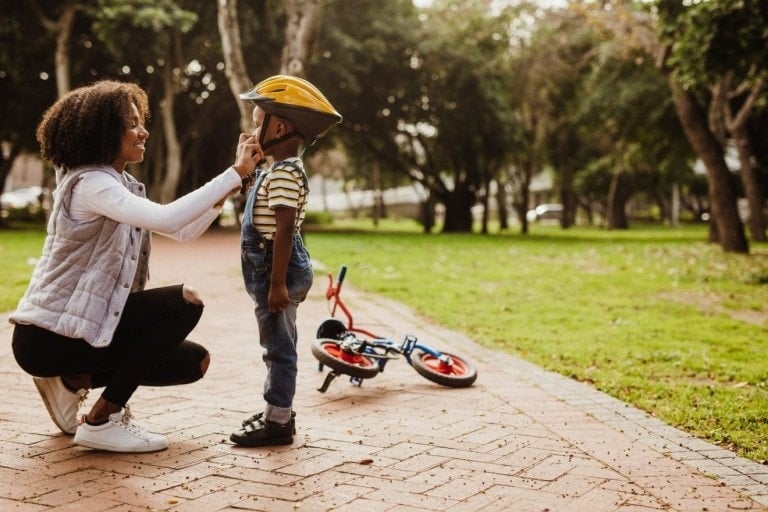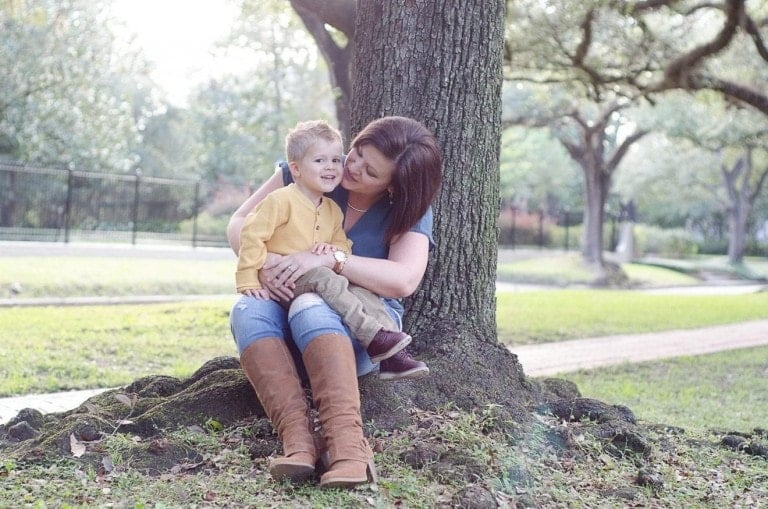When I was pregnant, even when it was too early to know the gender of the baby, I remember being warned about having a boy. People said, “Boys are tougher than girls” or “You will have your hands full.” There is this perception that boys are a handful and raising them is a challenge, more so than girls. And although society is slowly changing, there are still misconceptions about boys needing to be “tough” or emotionally stoic instead of kind-hearted. It goes beyond these simple comments; research tells us we use different words and speak to boys and girls in contrasting ways about their emotions as they grow. We are softer with girls, more accepting of emotions, and talk to them more openly about their feelings than we do with boys.1
Regardless of the reason, even well intended, this damages our boys because they become disconnected from their emotions, and they can find it hard to express themselves in healthy ways. A child with difficulty regulating themselves will find it hard to be calm, more emotionally volatile, less resilient, and have lower self-esteem. These things can, in turn, impact them socially and psychologically.2,3 These are all the things we are “warned” about when pregnant or raising little boys. So, by creating a culture of “tough guys,” are we actually creating a rod for our own backs by the way we raise our boys?
Can We Instead Build Up Our Boys to Be Resilient and Kind?
The concept of being tough is aligned in some ways with anger or not showing softer emotions like sadness or fear. When we only talk with our boys about certain types of feelings, like anger, predominantly, it causes them to misinterpret social situations and only gives them one tool to try and fix a problem rather than a whole emotional tool chest to work with. Instead of being tough, we accidentally make our boys vulnerable to emotional experiences as they don’t learn to develop or use a broader range of coping strategies.1 So, instead of focusing on toughening our boys up so they can fit in with societal expectations about what it means to be male, could childhood instead be spent increasing our boys’ kindness, compassion, and emotional intelligence? These are all skills that can directly and positively influence resilience.
Tips for Raising a Kind-Hearted Boy
Here are some tips to keep in mind to raise a kind-hearted boy in a “tough guy” world:
Kindness is a Strength
First, remember that kindness isn’t a weakness or a vulnerability. Kindness is a strength and a social skill that increases general mental well-being and a sense of optimism, improves social relationships, and even positively impacts physical health by reducing stress and decreasing blood pressure.4 Kindness for the win!
Give Him Great Role Models
Boys need great role models to see kindness in action, including positive male role models. Ensure that he can witness men and other boys being kind, compassionate, and emotionally engaged with others.
Restrict His Diet of Violence
Access to entertainment and video games is something parents can control. So, avoid giving your boy exposure to violence during his screen time. However, if he is reaching an age of increased independence, continue to ensure you monitor what he watches so you can couple this with balanced conversations or education about what he sees.
Reinforce That Crying Doesn’t Make Him Weak
Big boys do cry; no, crying won’t make him a wimp! As I mentioned above, if we only focus on teaching boys about violence or anger to manage their emotions, then that is how they will express their feelings. So don’t tell them not to cry or try and rush them through their feelings with phrases like “Only girls cry” or “You’ll be okay, toughen up.” Allow them to experience their full range of emotions, and don’t deprive them of the benefits of having a good cry or being comforted when they are sad.
Encourage His Mental Strength
Instead of being tough, help your boy become mentally strong instead. This means increasing his resilience, or the ability to bounce back after adversity and avoid rushing in to fix things, or he won’t learn how to problem-solve for himself. It also means focusing on solutions or problem-solving skills, teaching him how to set goals, or breaking up a big or tricky task into smaller, bite-sized, and easier-to-manage chunks. And don’t forget to praise his attempts and skills at persisting despite the challenges he may face.
The most important thing to take away from this is to be aware of the messages your boy might receive about being tough and try to balance them with conversations and skills relating to kindness and resilience. This will change the focus from being tough to being mentally strong, which will help him feel generally happier and much safer and loved as he grows from a kind-hearted boy into a kind-hearted man.


























